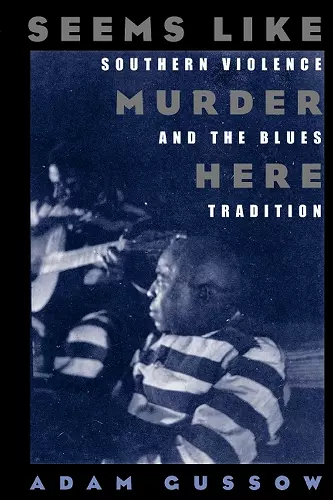Seems Like Murder Here
Southern Violence and the Blues Tradition
Format:Paperback
Publisher:The University of Chicago Press
Published:13th Dec '02
Currently unavailable, and unfortunately no date known when it will be back

Taking its title from a lyric by Mississippi bluesman Charley Patton, "Seems Liks Murder Here" offers a revealing new account of the blues tradition. Far from mere laments about lost loves and "hard times", blues songs and literature emerge in this provocative work as vital responses to the violent realities and traumatic legacies of African American life in the Jim Crow South. Blues recording artist and critic Adam Gussow begins his story in the 1890s, when the spectacle lynching of blacks became an insidious part of Southern life. Although lynchings are seldom referred to directly in blues songs, veiled references to them abound, and Gussow identifies these scattered mentions, tying them to real-life incidents and historical events in the autobiographies of bluesmen and -women. Southern violence, he shows also enters the blues tradition through folklore about "badmen": African Americans who take the lives of white aggressors in self-defence. Blues songs and literature, meanwhile, teem with searing depictions of bloodshed, such as the cutting and shooting that blacks inflicted on one another in juke joints. For Gussow, such expressive acts of violence are the quintessential blues gesture - burning examples of racial and romantic anguish. As Langston Hughes once wrote, "My love might turn into a knife/instead of to a song". With interpretations of classic songs and writings, from the autobiographies of W.C. Handy, David Honeyboy Edwards, and B.B. King to the poetry of Hughes and the novels of Zora Neale Hurston, "Seems Like Murder Here" should reshape our understanding of the blues and its enduring power.
"Beneath the effusive and effervescent tone of Mister Satan's Apprentice lie gnawing questions of race and identity, of cultural imperialism and human connection. And precisely because Gussow stays close to his story, with all its eccentricity and youthful abandon, he arrives at a kind of profundity that eludes [most] commentators." - Samuel G. Freedman, Washington Post Book World
ISBN: 9780226310985
Dimensions: 23mm x 15mm x 2mm
Weight: 539g
360 pages